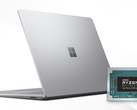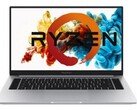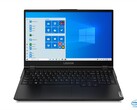We have already seen what the Ryzen 9 4900HS can do courtesy of the Zephyrus G14, while OEMs like Lenovo have teased what the Ryzen 4000U-series is capable of. PassMark has updated its CPU Mark database too, with the Renoir architecture now occupying the three highest-scoring laptop processors. As the screenshot shared by @_rogame demonstrates, the Ryzen 9 4900HS, Ryzen 7 4800H and Ryzen 7 4800HS all comfortably outscore the Core i9-10980HK, Intel's premier Comet Lake-H processor. Presumably, the Ryzen 9 4900H will outscore the Ryzen 9 4900HS, too.
Interestingly, the Ryzen 7 4700U outperforms the Core i9-9880H. Both are eight-core processors, but the Core i9-9980H would seem to have many advantages over the Ryzen 7 4700U. Firstly, the former is a 45 W chip, giving it a 30 W higher TDP than the Ryzen 7 4700U. Additionally, the Core i9-9880H has twice the threads and L3 cache that the Ryzen 7 4700U does. The Core i9-9880H has higher clock speeds, too. Our Ryzen 7 4700U reference system suggests that retail APUs will be incapable of matching the Core i9-9880H or equivalent H-series processors in other benchmarks, though.
Nonetheless, the Ryzen 7 4700U should have the measure of the Core i7-1065G7 in processor-heavy tasks. The difference between their integrated GPUs could vary wildly though. As we saw with the Iris Plus Graphics G7 in the XPS 13 7390 2-in-1, it can match the RX Vega 10 in the Ryzen 7 3700U in Rocket League, but only on certain settings. By contrast, there can be a huge margin between the same iGPUs in other titles like Shadow of the Tomb Raider.
Nonetheless, AMD has really brought its A-game to Intel this year, at least when it comes to laptop APUs anyway. The performance jump from the Ryzen 7 3750H to the Ryzen 7 4800H is huge, for example. Hopefully, the same applies to the Ryzen 4000 desktop series when it lands later this year.



















